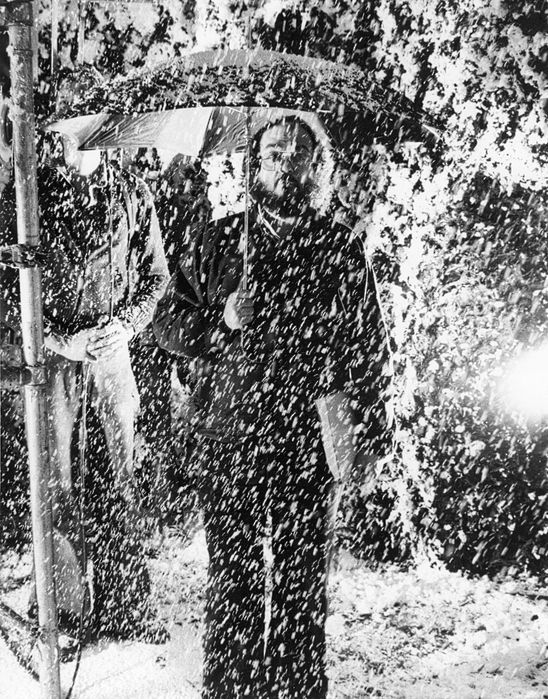SINGLETON FIRED AS CEO OF MEDIANEWS GROUP. THE PLANET GIVES YOU THE PLAY BY PLAY, with EXCLUSIVE inside content, or HOW AN INVESTMENT BROKERAGE CAME TO OWN THE EAGLE
BY DAN VALENTI
Part 2 of a Two-part Series
Up, down, and in between, many have made much of The Planet’s recent analyses and criticisms of the Berkshire Eagle, dubbed by this site as the Boring Broadsheet. Be clear. Our concern takes the form of tough love.
Growing up in Pittsfield in the 50s and 60s, the Eagle was our paper of record. It won outside awards to prove its mettle. In the mid 70s, while on vacation from my job as a rookie editor at the Syracuse Post-Standard, I came home to Pittsfield to visit family. The Eagle’s editor, Tom Morton, invited me to come see him. Morton talked to me about working there, which I found exciting and flattering. I stayed in Syracuse.
Since 1975, I have spent my entire professional career exchanging words for dollar bills by writing, speaking, or teaching them. In that time, I have followed closely the decline of the Eagle from one of the industry’s best to abject mediocrity.
It didn’t have to happen.
But happen it did, and the community has suffered perhaps irreparably. A city without a fearless daily will soon fall pray to carpetbaggers and the worst form of politics. It will decline economically, and its citizens will have a sense of abandonment. All this has come to pass in Pittsfield. In part, this is why we started this site: To give the bedraggled Little Guy an even playing field. To provide a daily source that won’t kiss up to corruption or look the other as someone tried to molest the common good.
That’s why The Planet has spoken out, and will continue to speak out, fearlessly. If the Boring Broadsheet won’t address the internal poisons that are rotting if from the core, we will let the community know. We won’t sit by while good and talented people who work there (we’d love to name them but most have asked that we don’t), journalists we still call friends, are kept back by a management that, unlike Punxatawney Phil, is afraid of its own shadow.
An Unabated Revenue Loss
As we saw in Part 1 yesterday, the Berkshire Eagle has been in the midst of a revenue tailspin that shows no sign of abating. The bankruptcy of Affiliated Media Inc., umbrella group of the Eagle’s MediaNews Group parent, exacerbated the situation, without doubt. When Singleton took over, and under the editorship of David Scriber, the Eagle was returning 25 percent in the boss’ dollars. Of course, that still wasn’t enough, and Singleton continued to order cost out of the newsroom. The consequences were disastrous.
There are, however, two other factors beside MediaNews bankruptcy, that have caused daily circulation of the Boring Broadsheet to dip to its current 18,000. That latter figure, incidentally, appears to be more accurate than the 20,000 The Planet has been using. It is supplied by a former Eagle senior manager who read our coverage yesterday and updated the number.
Significantly, unlike William Dean Singleton’s bankruptcy, each of these two factors remains within local control: Internet competition and management acumen. There is no excuse for the Eagle’s failure in these two areas.
The Internet: In the Driver’s Seat and Driving
Why, exactly, has the Internet methodically cleaned the clocks of newspapers like The Berkshire Eagle, while others, the Post-Standard, have been able to adapt much more successfully? In examining this, keep in mind that the easy money is no longer there for newspapers. Long gone are the days when having a newspaper was like owning a printing press to produce money. Since 2005, newspapers have lost almost $25 billion in annual ad sales. That’s a drop of about 45 percent (Source: Newspaper Association of America).
Local X-Factor #1, The Internet — To simplify, the Internet kicks the butt of local dailies when the latter fail to respond to six realities, as the Eagle has so failed:
* (1) Cyberspace is not bound by the physical production and distribution limitations of newspapers.
* (2) Cyberspace is a 24/7 medium, able to refresh pages as quickly as people produce new content and input same.
* (3) Readership of Internet news continues exponential growth, as The Planet has discovered personally by the growth of this site. This is occurring when physical newspaper watch circulations plummet.
* (4) Ads on the Internet sell for dramatically less than in the physical newspaper. Buying “space” in cyberspace takes on a whole other meaning as opposed to literally buying physical space on a piece of imprinted newsprint. Compare ad rates and you’ll see. What $100 buys you in the paper, $10 bucks or less will get you online, to be seen by more readers. Papers can’t compete against that.
* (5) Much of the content is free, and it enjoys a long life cycle. You can’t compete with free when you’re charging for yours and “free” is doing a better job of coverage. Moreover become obsolete the moment the next day dawns.
* (6) Greater competition on the Internet tends to weed out pretenders, non-hackers, and anyone in it just to dabble or fool around. Thus, legitimacy is harder to earn but easier upon which to build.
The Eagle has fared poorly on each of these six points. Let’s see how
The Boring Broadsheet: Failing the Six, Plus a 7th
(1) The Eagle must be physically printed and distributed through clumsy means that are not only “dirty” as opposed to “green” but also comparatively and woefully inefficient. Ask paperboys and girls who get lax on the job or delivery drivers who must deal with winter weather.
(2) The Eagle newspaper, as all news PAPERS, goes to press and that’s it. Content is locked in, save for rare and prohibitively expensive catch plates, where a press run is stopped and a new plated is strapped on to update a story. With newspapers, catch-plating warrants memos from the publisher. In cyberspace, catch-plating is a standard operating procedure.
(3) The Eagle, suffering from MediaNews’ refusal to invest in the news operations, has seen the decline of local coverage. Gone is the hard news and tough coverage. Arrived and camped is the “fluff and feel good” approach.
(4) The Eagle’s ads, many merchants say, are overpriced relative to dropping circulation. It’s just not a good investment for scarce marketing and sales promotion dollars.
(5) The Eagle’s subscription costs are certainly not free. Worse, they have only risen and have never decreased. That rise is price for the reader will continue.
(6) The Eagle for so long has had no real competition. They are the town’s only local daily, radio news and commentary has grown flaccid, and there’s no one there to push the BB to get better. They don’t have to fight for stories. In fact, editors discourage enterprise reporting. Consequently, an institutional and managerial laziness has set in, which has morphed into ineptness, particularly when gauged by newsroom management. This has taken a huge toll on the talented staff.
There’s also a seventh factor that has wrecked the Eagle.
The Web, She’s a Whole Different Animal
(7) It hasn’t figured out how to run news “paper” on the web. The Eagle’s web site is unimaginative. It lacks dynamism. It doesn’t invite you in or get you to come back. It’s slow and cumbersome. It lacks relevance. Stories are typically shoveled in from the physical paper. The website generates little of its own content. Online readers want more and have come to expect more. What then don’t get online from you they find somewhere else, such as this site.
For example, the growth of the iBerkshires’ web site reflects the Eagle’s performance in (7). The iBerkshires website looks like an Internet news “paper” should. It reflects its owners investment in, and understanding of, cyberspace. They have a competent and hard working news director, Tammy Daniels, who would look good in most any performance measure, but when she’s put up against the Eagle’s executive editor Tim Farkas, she’s a combination of Horace Greeley and Joseph Pulitzer. Then again, so are many editors. Which leads to …
Local X-Factor #2, Poor Management — The economic downturn has a way of exposing poor management. No longer can a roaring economy cover up for bad leadership. Those days are over in Pittsfield and elsewhere. As the easy money evaporates, newspaper management stand out in relief: the good, the bad, and the ugly. There’s nowhere to hide.
The Planet stresses it’s nothing personal against Farkas. We’ve lunched with the guy. We’ve attended the same functions. We like him. He’s a good man. Farkas, however, is a sports guy put in the top news spot of the company, and he’s not delivered.
Farkas’ failure is a combination of lack of executive experience, inexperience with hard news, and the constraints placed upon him by publisher Andy Mick, who gets his orders from penniless Denver.
At a time when the convergence of trends bodes any number of equally dire futures for the Eagle, at a time when it needs a newsroom rally man and leader, at a time that it needed a Lawrence K. Miller, it got a Tim Farkas, who is little more than the action arm of the fevered directives Mick receives from Denver. An editor who does not have a wide independent steak is too easily cowered into kowtows in such an environment.
The mood in newsrooms is viral, and how the editor handle the business side quickly spreads. In the Eagle’s case, where senior management is a pawn of Denver’s ruthless business dictums, it remains a daily struggle for real journalists who care about news to maintain their focus and morale. It’s the human factor of not being appreciated. Believe me, The Planet’s been there and done that: When you have an editor who has your back, you will run through walls to deliver the story. When you have one who’s shivering in fear of the business side, you retreat within your own Cone of Silence. You face the ultimate professional gut check.
‘The World Cannot Be Muzzled!’
One of our favorite newspaper stories takes place in 1908. President Theodore Roosevelt launched a personal attack on Pulitzer, publisher of the New York World. The publisher had long been a political foe and had consistently opposed Roosevelt’s penchant for war and his foreign adventurism (the Spanish-American War notwithstanding). Pulitzer’s papers also covered suspected corruption in the the building of Roosevelt’s pet project, the Panama Canal.
With three months left in his term before President Taft took over, Roosevelt used all his power to foment the prosecution of Pulitzer for what was essentially sedition.
Pulitzer, who by then had become blind and beset with other health woes, returned to New York from a long rest, where aides informed him of Roosevelt’s intimidation tactics.
“‘He rose from the couch on which he was taking his afternoon rest and smote the coverlet with clenched fist,’ [wrote one of his editors, Norman Thwaites]. ‘The World cannot be muzzled,’ Pulitzer burst out. Then, dictating as a clip that strained the capacity of Thwaite’s shorthand, he dictated an editorial” defending The World [p. 424-5, Pulitzer, the recent bio by James McGrath Morris).
In the editorial, Pulitzer wrote: “So far as the World is concerned, its proprietor (himself) may go to jail if Mr. Roosevelt succeeds as he threatens; but even in jail, the World will not cease to be a fearless champion of free speech, a free press[,] and a free people. It cannot be muzzled.”
That’s what an editor does. He doesn’t melt when the business side dictates that he lay off this sacred cow, write fluff for that one, step in the other one’s poop, or engage in coverage that is not good either for the content of the paper or the morale of the newsroom.
MediaNews’ Bankruptcy: A Brand New Ballgame
When MediaNews Group (Affiliated Media Inc) declared bankruptcy in January 2010, the newspaper industry wasn’t shocked. Readers of the Berkshire Eagle might have been, though, since the Boring Broadsheet largely kept the news its readers. It was a Singleton tactic at his other papers.
In the Denver Post, for example, editors had orders not to use the word “bankruptcy” in its headlines. Instead, they were to use the innocuous “Chap. 11.” To the misinformed, “Chap 11” could sound like a book of the New Testament, but the reading according to Chapter 11 of the Book of Singleton did not offer transparency. MediaNews Group editors, including the Eagle’s presumably, were were told to spin the story.
According to Westword.com, no Singleton publication printed the details of Singleton’s salary as determined in the bankruptcy proceedings in court. An examination of the court records shows that even as his company was choking with almost $1 billion in debt, the reorganization plans specified the following compensation for Singleton: $634,000 annual salary, a bonus of up to $500,000 as Affiliated Media’s top executive, and $360,000 annually from The Denver Post Corp.
What, the Eagle didn’t report that, even as Singleton did nothing to stem the Pittsfield daily’s slow death?
Oh, and did the BB report that under the reorganization, Affiliated’s president, Joseph Lodovic IV got a $1 million annual salary, 3 percent of the reorganized company’s stock, and up to $750,000 in bonuses? No?
Under the terms of the agreement, according to court records, the company’s 116 lenders, including the Hearst Corp., which Singleton owed $317 million, ended up with 80% of the reorganized company. Hearst lost $317 million in cash. Singleton and his partner, Richard B. Scudder, suffered only losses on paper, that is, not a red cent of their own money.
Singleton’s and senior management walked away with 20 percent of the new company through stock and warrants. The Eagle didn’t tell you this? We didn’t think so. Did the BB mention that Singleton and Lodovic ended up with all of the Class A shares of stock? They were also allowed to handpick a controlling share of the new seven-member board. Hearst and the other 115 creditors got left with class B and C shares. This was to change, fortunately, in a stunning development one year later.
What does this mean, that Singleton ended up with all the Class A stock? According to Investor Glossary, “Class A shares of stock are generally thought of as a preferred tier of classified stock. In many companies, Class A shares have greater voting rights than Class B shares or any other class of shares. One reason for creating this disparity in voting rights between classes of stock is to insulate company management, typically the owners of Class A shares of stock, from retail investors on Wall Street.”
In other words, though Singleton’s lust for acquisition through debt ran a large company into the group and crippled newspapers such as the Berkshire Eagle, he walked away with almost $1.5 million in annual compensation, all (with Lodovic) the new company’s preferred stock, and the right to pick the board of directors.
The company ended up being controlled by an investment firm, Alden Global Capital, which would appear makes it the Eagle’s new owner. It was only recently that Alden acted to end the madness.
Here is the story of greed all over again, a tale that convinces the good, honest, and decent average citizen that they game is rigged.
New ‘Owners’ Fire Singleton
The most recent development in the case — uh, did the BB tell you? — is Singleton’s resignation as CEO of MediaNews Group as of Jan. 18? After Singleton quit, Alden Global Capital wasn’t saying too much. It is reported to be looking for a media partner to manage the fallout of the MediaNews explosion engineered by Singelton. It’s also clear to The Planet that Singleton “resignation” came on dictate of Alden Global: “Either you ‘resign’ or we dump you. Now which is it?”
Thus, the media mogul found himself unceremoniously dumped. He tried to put a spin on it, but most of his employees were dancing and singing, “Ding, dong, the witch is dead. The wicked witch is dead.” Isn’t payback distasteful?
Singleton is on record saying he is not retiring. He says he wants to remain with the company as “executive chairman” (whatever that is). He also says he wants to hold onto power. Maybe so, but Alden Global may be thinking otherwise. In an 11th hour bit of intrigue, Jody Lodovic (last name sound familiar?) quit the company unexpectedly following Singleton’s announcement. It’s notable that, when asked, Singleton wouldn’t reveal how much of the reorganized MediaNews Group company is owned by Alden Global. He called them “a substantial shareholder.”
Industry insiders say Alden Global controls enough of the company to control the board, put its own people there, and appoint an interim president.
Singleton’s world seems to be imploding. Is this the end of Dean Singleton’s rape of the Berkshire Eagle? One would hope so, even knowing that the new “owners” appear to be an investment company looking to dump.
Pittsfield deserves so much better.















I’m sure you’ve read this but if you haven’t, check out Newsonomic’s take on equity holdings and Deano’s ouster. http://tinyurl.com/4nof44m
Thanks for the shoutout but Greeley and Pulitizer? We are not worthy.
This is a helpful link.
TAMMY
I consulted with my board of directors, and they unanimously decreed you to be WORTHY. All bow before worthiness!
agree
dan,do u think that with newspapers losing out in the internet age, that a small paper of 18.000 could survive if the news people u know were allowed to work their trade and write the news without being censored..
rick
Absolutely, yes. Given a base of 18,000 and an absolute determination to live up to its responsibilities as the 4th Estate, such a daily, uncensored and fearless in its coverage, would win back readers and become profitable. Absolutely. Newspapers are on the decline, but they won’t be going away overnight. Profits lie in the right combination of smarts from the print daily and the wed daily augmenting each other.
Read with great interest. None of this did the Eagle share with its readers, a shameful example not just of spin but of deliberate withholding of the news. We thank this site for its reporting.
Thank you Tammy,shows the Eagles non-news savy.
18,000 circulation!
That seems small, but it is still about three times the 6,900 loyal listenership of public broadcaster WAMC Northeast Public Radio, a local media outlet which generates money hand over fist.
Please note that Factors 1 through 7 above also do not explain why Berkshire Eagle Publisher Andrew Mick and lapdog editor Tim Farkas refuse to publish relevant facts in locally important stories (e.g.: the nature of the original criminal charges — propositioning underage boys for sex — for which Angelo Stracuzzi was charged by Biddeford Maine police in 2004), nor does it explain why Mick and Farkas omit reportage of some news stories entirely (like the whole matter — exposed by Dan Valenti on this Web site — concerning the proposed purchase at a platinum price of PCB-contaminated property for the city’s new DPW garage).
Nor do Factors 1 through 7 explain the outright censorship of ‘politically incorrect’ reader comments posted to The Berkshire Eagle’s Disqus Web pages (and earlier to The Eagle’s Topix Web pages).
Censorship is regularly practiced against reader comments that contain locally relevant facts and information about which Publisher Andrew Mick plainly does not want The Eagle’s reading public to know about.
The Eagle plainly attempts to exert control over that which the Berkshire public is allowed to know and that which The Eagle’s management for its own reasons does not want that public to know.
Great piece. In fact, this two part series is an award winner. I follow things pretty closely and none of this about the BB’s parent company was printed locally or on the radio locally by anyone. As fast as the eagle is losing credibility this site is gaining it
very informative series Dan!
Many thanks., Mike
Oh Boy another story from Dan about The Eagle!!!